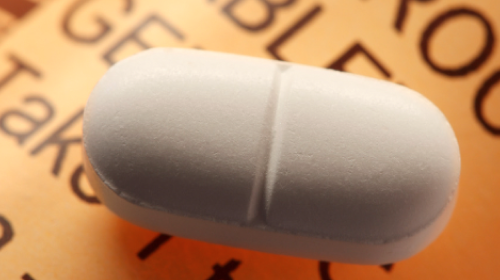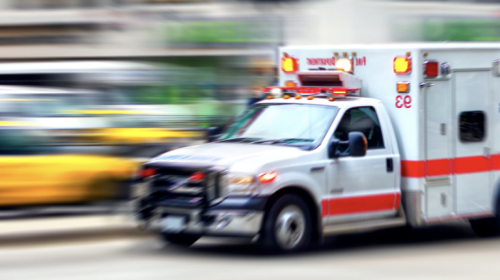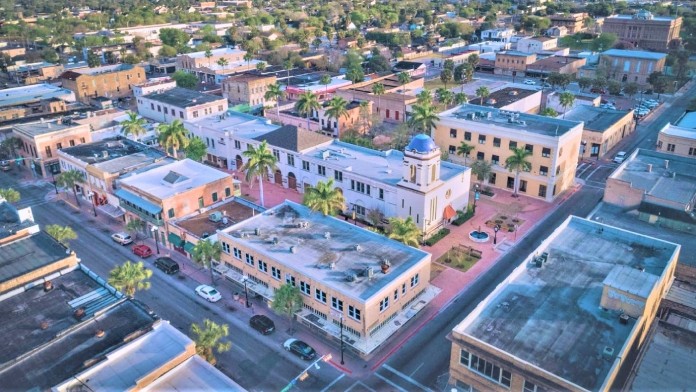Expert Insights
Its location near the Mexican border has made Brownsville a center for drug trafficking. This major distribution hub sees a high level of drug activity, with smugglers moving cocaine, heroin, meth, and marijuana through Brownsville to other U.S. destinations. And yet, amidst this center of drug distribution, there are only six – yes six – substance use treatment facilities. For comparison, Little Rock, AR has only a slightly larger population, but it is home to 22 treatment centers. Why are there so few resources in Brownsville for those who struggle with drug abuse? Policy makers need to do something to establish more facilities that will bring much-needed support to this city.
~ Kerry Nenn
Cost of Drug Rehab in Brownsville
The cost of alcohol or drug rehab in Brownsville varies from facility to facility based on several factors. Your treatment costs will depend on the type of facility you choose, whether you have insurance, what your insurance plan covers, and the length of time you spend in care. According to the Substance Abuse and Mental Health Services Administration, Cameron County has seven alcohol and drug facilities. Of those treatment centers:7
- Five offer various forms of payment assistance
- Six work on a sliding fee scale for patients with low incomes and insufficient or no health insurance
- Seven accept Medicaid
- Four accept Medicare
- Seven accept private health insurance
If you have health insurance, whether it’s a publicly funded or private plan, your policy should provide some level of coverage for addiction treatment. But you’ll need to call your provider to verify your benefits and extent of coverage. Depending on your policy, your insurance could significantly reduce or even eliminate your treatment costs at Brownsville drug rehabs that accept your plan.
Low-Cost and Free Drug Rehab Centers in Brownsville
If you feel like help is out of reach because of your financial situation, you can still access quality care. Several local facilities understand that not everyone can pay for high-cost treatment. These recovery centers offer various forms of financial assistance for eligible individuals that can make care highly affordable or even free.
State-Funded Addiction Treatment Centers: State-funded Brownsville alcohol rehabs receive government subsidies that allow them to treat Cameron County residents, regardless of their ability to pay. If you can demonstrate financial need, you may be eligible for low-cost or free treatment at one of these facilities. To qualify, you must provide proof of residency and income, as well as proof that you’re uninsured or underinsured.
Scholarships: Scholarships can pay for 100% of your treatment or may only cover a percentage of your total costs. Some facilities offer these scholarships in-house, while others partner with outside donors that sponsor treatment for eligible individuals. If you can demonstrate financial need, you can apply for scholarships, but be aware that these awards are highly competitive because many people apply for them.
Sliding-Scale Program: According to the Substance Abuse and Mental Health Administration, five alcohol and drug rehab facilities within 25 miles of Brownsville offer treatment services on a sliding fee scale.7 These facilities use your income (and sometimes other financial variables like your non-negotiable monthly expenses) to determine how much you can afford to pay. This type of flexible fee system can dramatically reduce or even eliminate your treatment costs.
Brownsville Alcohol and Drug Use Statistics
Brownsville is the county seat and the most populous city in Cameron County, Texas. Like many municipalities near the Mexico–United States border, the city has long struggled to control illicit drug use among its residents. Alcohol use is also a major community health concern, as chronic liver disease remains the county’s third-leading cause of death.1 Other drug and alcohol use statistics of note for the area include:2, 3, 4, 5, 6

In 2019, 25 Cameron County residents lost their lives to accidental drug overdoses. Nearly half of those deaths involved opioids.

In 2020, Cameron County recorded 39 opioid-related emergency department visits at hospitals throughout the county.

In 2017, roughly 15% of Cameron County adults self-reported engaging in binge or heavy drinking.

In 2017, roughly 3,350 Cameron County minors were admitted to treatment for substance use and/or mental health concerns. Nearly 300 of those individuals were diagnosed with co-occurring conditions.
In 2019, Texas’ Region 11 (to which Cameron County belongs) recorded nearly 5,600 traffic crashes involving alcohol and/or drugs. Roughly 2,370 of those incidents involved alcohol and drugs combined.
In 2019, nearly 1,000 Region 11 residents were admitted to treatment for an alcohol use disorder. Roughly 1,020 residents were admitted for heroin use, approximately 300 were admitted for methamphetamine use.
Drug and Alcohol Laws in Brownsville, TX
Jessica Sosa Act (Texas Good Samaritan Law): In 2021, Texas passed House Bill 1694, also known as the Jessica Sosa Act, to encourage more people to call 911 when they witness a person experiencing a drug-related overdose. Under this law, the first person to seek emergency medical assistance for someone who appears to be overdosing cannot be arrested or prosecuted for certain drug-related offenses. Only people in possession of small quantities of controlled substances are eligible for legal immunity under this act, including those who seek help during their own suspected overdose.8</sup
Expanded Naloxone Access: Under Senate Bill 1462, individuals who may be at risk of experiencing an opioid-related overdose can obtain an opioid-reversal medication called naloxone without a prescription from participating, licensed pharmacies. Anyone who may be able to administer naloxone to a person experiencing an overdose can also get the medication from participating pharmacies without a prescription. In 2019, Texas also became the first state in the union to offer naloxone for purchase online.9, 10
911 Lifeline Law: Under Senate Bill 1331, persons under the age of 21 who call 911 for a peer who appears to have alcohol poisoning will not be prosecuted for alcohol possession or consumption. Individuals under the age of 21 who seek emergency medical assistance for their own alcohol overdose also have limited legal immunity under this law.11
Sandra Bland Act: Under Senate Bill 1849, Texas correctional facilities are required to not only identify persons with suspected substance use and/or mental health disorders but also divert them to treatment. This bill also makes it easier for incarcerated individuals with substance use and/or mental health concerns to obtain a personal bond.12
Cameron County Divert Court: In Cameron County, certain individuals charged with non-violent, alcohol-related, or drug-related offenses can opt into the court’s diversion program rather than going through traditional court proceedings. This program aims to rehabilitate offenders with addiction and requires a closely supervised, 12- to 18-month commitment. Upon successful completion of the program, participants can have their charges dismissed.13, 14
Addiction Treatment Settings
Every person’s recovery journey is unique. Drug and alcohol rehab centers in Brownsville reflect that, offering treatment options that can meet various needs.
Medical Detox
Medical detox is usually the first step in recovery. Detox is the process of removing toxic substances from the body. Depending on the type of substance use disorder, medications can be used to help reduce the severity of withdrawal symptoms and manage cravings.
Inpatient
Inpatient rehab, or residential care, provides a controlled environment away from home where you can work on overcoming your substance use disorder. Each day is structured around your specific recovery needs and often involves individual and group counseling. A typical program can last up to six months.
Partial Hospitalization Programs (PHPs)
PHPs are the most intensive outpatient option. Patients typically receive several hours of care a day, up to seven days a week. While it’s similar to inpatient, it does not require you to stay at the facility. Instead, you may decide to “step down” into a partial hospitalization program from inpatient or move up from more standard outpatient.
Intensive Outpatient Programs (IOPs)
IOPs allow you to continue with your normal day-to-day life while also receiving addiction treatment. IOPs are a good choice if you cannot commit to full-time residential care and have a living environment with supportive family and friends. You will typically visit a facility 3-4 times a week for several hours.
Standard Outpatient
Standard outpatient is less restrictive than an inpatient or IOP program. You can expect to visit a facility anywhere from 10-12 hours a week for care. Meetings are often at night or early morning so you can continue your normal work or school schedule. It can last a few months to over a year.
Aftercare
After completing drug rehab in Brownsville, you’ll begin the process of transitioning back into normal life. There are several aftercare options to ensure your post-rehab success. Some of these options include sober-living homes, individual and group counseling, and twelve-step programs such as Alcoholics and Narcotics Anonymous.
Should You Travel for Drug and Alcohol Rehab in Brownsville?
 If you can’t access the type of addiction treatment you need where you currently live, you may want to travel to a drug or alcohol rehab in Brownsville. While traveling for care is a personal choice that only you should make, you’ll want to consider several things before deciding on an out-of-town treatment facility.
If you can’t access the type of addiction treatment you need where you currently live, you may want to travel to a drug or alcohol rehab in Brownsville. While traveling for care is a personal choice that only you should make, you’ll want to consider several things before deciding on an out-of-town treatment facility.
Some questions you should ask yourself to decide if traveling is right for you include:
- Does your health insurance cover treatment at drug rehabs in Brownsville?
- Do you need help paying for care? Can you access financial assistance at detox centers in Brownsville?
- Do you have a support system in the area? (Having loved ones nearby can be helpful as you work through treatment.)
- Do you enjoy the warm, arid climate of Brownsville? Would you like to work through treatment in an area that’s close to the ocean?
- Would removing yourself from your normal environment help you avoid people and/or situations that usually trigger your desire to use drugs and/or alcohol?
If you’re looking into drug or alcohol rehabs in Brownsville, remember that being in an environment you like may play an important role in your recovery. Think about whether you prefer a more urban locale or a less-populated area that’s quieter and more peaceful. Brownsville offers both settings in various areas of the city. Neighborhoods you should consider for rehabilitation include:
Downtown Brownsville: This densely populated area of town is designated as a National Historic District and is home to many historic buildings, local businesses, green spaces, and cultural events.
Villa Poncho: This neighborhood borders the Sabal Palm Sanctuary on the Mexico-U.S. border, so if you enjoy a quieter, more natural environment, you may prefer this part of town.
Cameron Park: This neighborhood sits on the outskirts of downtown Brownsville, so if you enjoy an urban-suburban environment, you’ll find that here. The area also allows quick access to Highway 48, which leads directly to San Padre Island. If you like the ocean, you can get there in roughly 30 minutes.
Resources
- Brownsville, Texas Population 2021 (Demographics, Maps, Graphs). (n.d.). Worldpopulationreview.com.
- Texans Fight Fentanyl | Texas Workforce Commission. (2021). Texas.gov.
- FindTreatment.gov. (n.d.). FindTreatment.gov.
- Gonzalez, S., Limon, A., Davila, D., McAnarney, A., & Boyd, K. (2018). Cameron County community: Social and epidemiological assessment.
- Texas Department of State Health Services. (n.d.). Drug Overdose Deaths.
- Texas Department of State Health Services. (n.d.). Opioid-Related Emergency Department Visits.
- Behavioral Health Solutions of South Texas, Prevention Resource Center 11. (2019). Regional Needs Assessment.
- Behavioral Health Solutions of South Texas, Prevention Resource Center 11. (2019). Crashes—Alcohol and Drugs 2019.
- Behavioral Health Solutions of South Texas, Prevention Resource Center 11. (2019). Substance Use Disorder Admissions for Region 11 in 2019.
- Substance Abuse and Mental Health Services Administration. (n.d.). FindTreatment.gov.
- Texas Legislature Online. (2021). House Bill No. 1694.
- Texas State Board of Pharmacy. (n.d.). Opioid Dispensing.
- Texas Legislature (n.d.). Senate Bill No. 1462.
- Texas Legislature (n.d.). Senate Bill No. 1331.
- Texas Legislature (n.d.). Senate Bill No. 1849.
- The County of Cameron Brownsville, Texas. (n.d.). Guidelines for Cameron County Pre-Trial Release.
- Texas Department of Criminal Justice. (2003, March 03). Texas Drug Courts.



